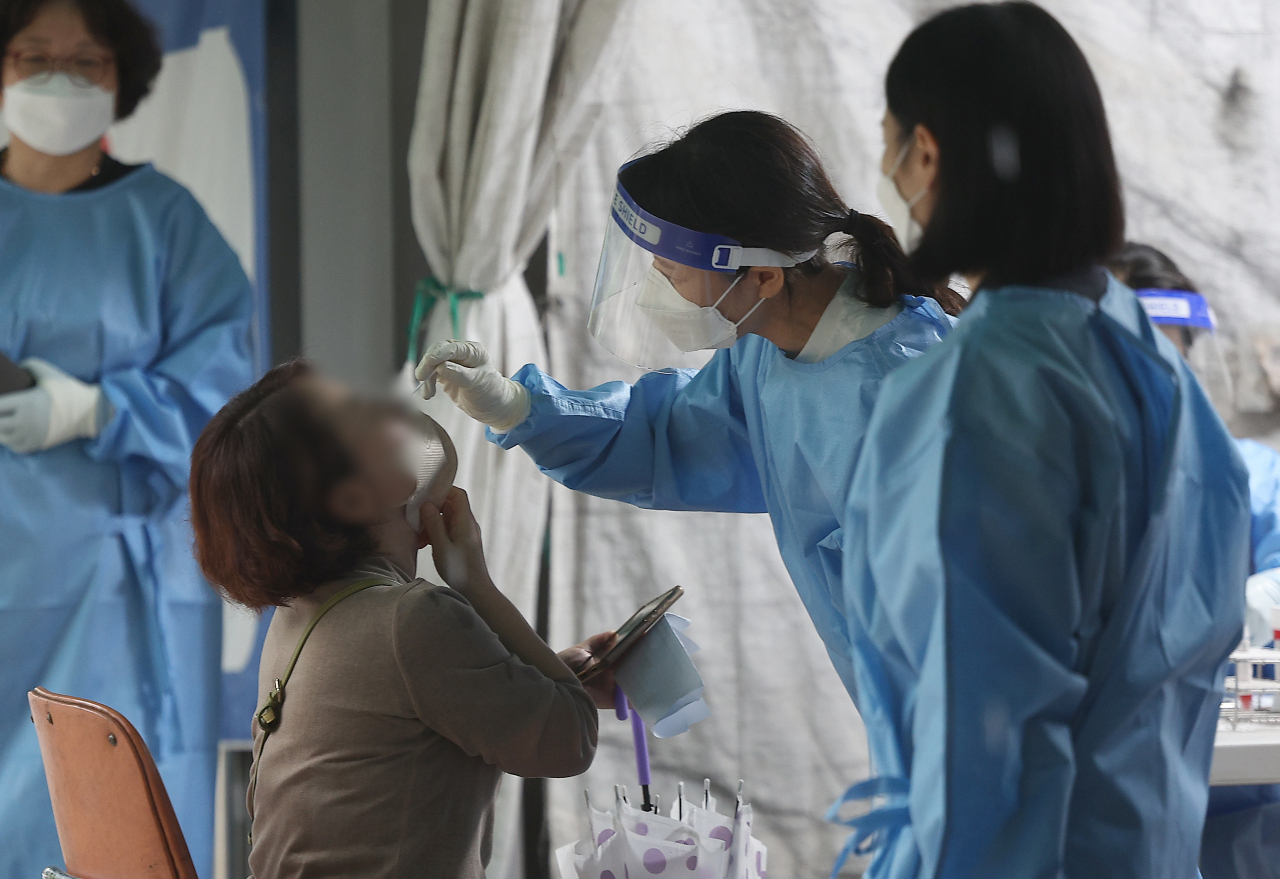Korea ends free COVID-19 testing
Most will have to pay for tests, except for high-risk groups; critics raise concerns over testing hesitancy
By Lee JaeeunPublished : Aug. 30, 2023 - 14:54

As South Korea reclassifies COVID-19 to the same category as the seasonal flu starting Thursday, coronavirus tests will still be available, but will no longer be free of charge to everyone, health authorities said Wednesday.
The Korea Disease Control and Prevention Agency has announced that COVID-19 will go down from class 2 to class 4, the lowest infectious disease category, bringing changes to state policies that have provided COVID-19 testing for free and discounted medical benefits for more than three years.
Prior to the planned reclassification, the government covered the complete expense of the rapid antigen test for individuals with symptoms at local clinics. People only paid a medical examination fee for doctors ranging from 4,000 won to 6,000 won ($3-4.5). However, after COVID-19’s reclassification to class 4, most people -- with the exception of high-risk individuals -- must pay for the entire cost of the RAT, ranging from 20,000 won to 50,000 won per test from Thursday.
Only people at a high risk of health complications, such as those aged 60 or older; inpatients; patients in emergency and intensive care units; and individuals who are recommended to take oral COVID-19 treatments covered by health insurance, will be eligible for a 50 percent subsidy for the RAT.
These updated guidelines will also similarly apply to the polymerase chain reaction (PCR) test.
The government has covered a portion of PCR test expense for those who tested positive so far. Starting Thursday, it will partially cover PCR test fees only for those who are recommended to take oral COVID-19 treatments. Those who do not fall in this category have to pay the entire cost of the PCR test, which ranges from 60,000 to 80,000 won at medical institutions.
Individuals deemed to be at high risk, such as those aged 60 or older and inpatients, will still be guaranteed free PCR testing at 561 COVID-19 screening test centers nationwide at public health centers.
Medical institutions said they will keep patients notified of the changes in guidelines to avoid confusion in their operations.
On Wednesday, a freelancer in her 20s surnamed Han visited an otolaryngology clinic in Seoul and asked whether she could get the RAT for free. She was told that since she was not in the high-risk group, the RAT test would be free until that day, but that she would have to pay 30,000 won for the test from Thursday.
Critics are concerned that this new guideline will adversely affect public health by discouraging people from getting tested.
A 32-year-old office worker surnamed Kang said he would not get the test because of the high cost. “Even if I get COVID-19, my company doesn't provide sick leave, so if the test cost is high, there would be no reason to get an official test result.”
The Korea Medical Clinic Association said in a statement that the association is worried about a resurgence this fall. “Due to high test fees, there will be a sharp drop in the number of COVID-19 tests conducted, leading to tens of thousands of individuals unknowingly carrying the virus, potentially triggering a resurgence.”
In addition to the end of free COVID-19 tests and discounted services, subsidies such as financial aid and paid vacation expenses to low-income patients will be axed. Support for COVID-19 hospitalization costs will only be covered for some people, such as severely ill patients. The government will also discontinue its daily tally of confirmed COVID-19 cases, which has been in place since the pandemic's outbreak.
Meanwhile, the daily average of new COVID-19 infections for the week of Aug. 20-26 was 37,758, marking a 9.4 percent decrease from the previous week's 41,698.


![[Weekender] Geeks have never been so chic in Korea](http://res.heraldm.com/phpwas/restmb_idxmake.php?idx=644&simg=/content/image/2024/05/16/20240516050845_0.jpg&u=)


![[News Focus] Mystery deepens after hundreds of cat deaths in S. Korea](http://res.heraldm.com/phpwas/restmb_idxmake.php?idx=644&simg=/content/image/2024/05/17/20240517050800_0.jpg&u=)

![[KH Explains] Why Korea's so tough on short selling](http://res.heraldm.com/phpwas/restmb_idxmake.php?idx=644&simg=/content/image/2024/05/19/20240519050115_0.jpg&u=20240519162247)

![[Herald Interview] Byun Yo-han's 'unlikable' character is result of calculated acting](http://res.heraldm.com/phpwas/restmb_idxmake.php?idx=644&simg=/content/image/2024/05/16/20240516050855_0.jpg&u=)









